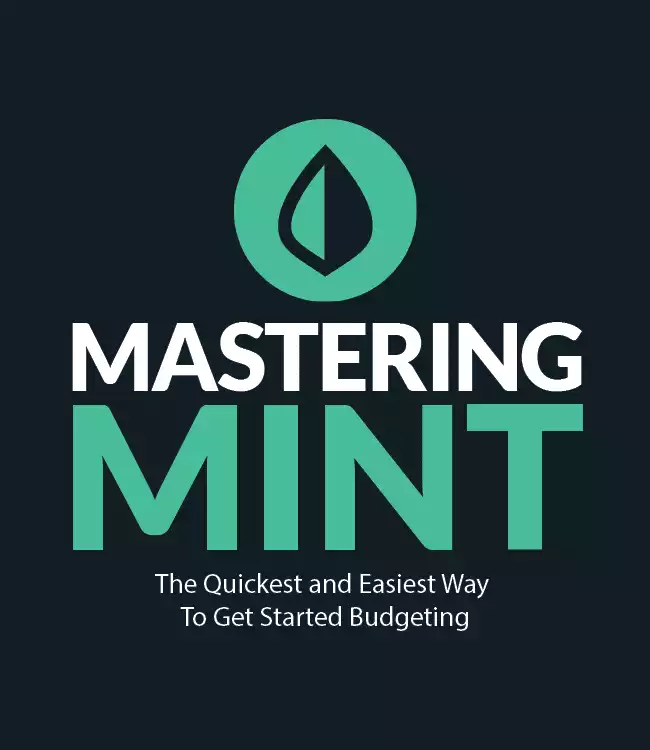What does it take to be an adult? Is it signing that first rent check without the help of your parents? Commuting to work every day and managing your own career? Making decisions without seeking the counsel of your closest friends first?
The truth is, there’s no single moment at which you’ve officially become an adult. It’s a series of events that, added up, lead you to realize you’ve crossed the chasm between carefree youthfulness and more accountable maturity — and it can happen at any age.
But what if there were something that could help you ease the transition? There is. Here’s a set of guidelines to keep you focused on your journey to full-fledged adulthood. Dig in and get ready.
1. Build a Financial Roadmap

Make a Money Map
One of the first things everyone has to do as they begin adulting is plotting out a money plan. This is also one of the most dreaded tasks, but it doesn’t have to be. If hearing the word “budget” gets you about as excited as the idea of poking your eye out, consider this.
The more you understand the flow of your money, the better the chance you have of controlling that flow.
We don’t have to say the word budget if you hate it (which just about everyone does). Let’s go with money map instead. Just like if you were going to plot a road trip, plot a money map.
And just like you would have to understand things like what condition your car is in, how much you’ll likely spend on gas to get to your destination, and how much you’ll have to pay for food and shelter, so too you’ll need to know a few things first to create a money map.
Let’s get started:
- Do you have any savings? Retirement? Calculate the numbers.
- Add up your total monthly income.
- Subtract your total monthly expenditures.
- List your financial priorities just like you would destinations on a map.
- Do the math.
Now you can clearly see if you’re able to work your way to your financial destinations. If you have extra money each month, count how many months it will take to reach your goals. Then track your progress each month and celebrate as you get closer.
And if you don’t have any extra money each month to get to your goals maybe you need to make some…
Pit Stops to Plug Debt Holes
You might need to take some pit stops to plug debt holes. Things like credit card debt or student loan debt can slow your financial progress, but they don’t have to bring it to a halt.
If your debt is a small enough amount that you can pay it off in a couple years or less, consider moving it to the top of your financial destinations list. Once you have it paid off, the money you put towards that every month can immediately go to the next financial destination. This means you’ll build momentum as you go.
But if your debt will take longer to pay off and/or you’re not able to pay above the minimum payment, then take a look at what you’re starting with more closely.
You might need to find ways to increase your income (such as with a side gig) and decrease your expenditures. The latter doesn’t even have to mean fully removing all of the expenditures, it could be as simple as decreasing their frequency.
Once you’ve found a way to change what you’re starting with — a task that can take a few tries to work — redraw your money map and plot out your destinations.
Put Your Credit on Cruise Control
A lot of people who are focusing on their finances worry about credit, but this is one area you can put on cruise control. If you’re paying all of your bills every month — and never, ever pay late — then you don’t have to worry.
Never put credit in the driver’s seat. Flip it into cruise control and save your energy for the more important pieces of your money map, such as paying off debt and building wealth.
All it takes to build credit is to use it wisely. Keep your credit card balances as low as possible (owing less than 30 percent of your total balance is ideal) and make all of your payments on time.
And know that you do NOT need to carry a balance on your credit card to build credit. If you can, use it and pay it in full each month so you don’t lose money to interest.
Besides keeping credit card balances low or paying them off, the only other active thing you should do here is to check your credit report once per year at AnnualCreditReport.com. Doing so will help you spot inconsistent credit reporting and identity theft. If you see anything amiss, dispute your report immediately.
Other than that, let this part of your financial life cruise.
Build Wealth So You Can Reach Greater Destinations
Finally, as you plot out your financial destinations (say planning actual travel or buying a home), try not to forget that building wealth will help you reach even greater destinations.
To start, save for retirement even if you’ve only just entered the workforce. Thanks to the magic of compound interest, you’ll save far more for the future by investing early than you would by doubling down later on.
And, as you get used to this, you can even start dipping your toes into investments outside of retirement. Robo-advisors make it easy to get started with investing your money, and you can choose to get more involved with your investments if and when you feel comfortable (though setting them and forgetting them is fine too).
The main thing to know here is that you don’t have to feel tied to the income you earn today to plot the path to financial success. Get used to the idea of not just earning, but also growing your money. And if you only invest funds you can afford to lose, then you can do so safely and wisely.
2. Consciously Craft Your Career Trajectory

Get Your Feet Wet
Speaking of earning money, a fair amount of time spent trying to figure out how to adult will involve finding and growing your career. When you get out of college, you might think you’ve gotten a golden ticket to the workforce and that you’ll be making six figures and paying off your student loan debt in no time.
Unfortunately, that’s not always the case. You might have to get your feet wet in your desired industry before you can get the numbers and title you dream of. That might mean starting with an internship or an entry-level role that’s only marginally tied to what you want to do.
No start is too small when crafting the career of your dreams. Every opportunity is 100% what you make of it.
And that’s okay. Getting in the door is often the hardest part. So if you’re lucky enough to have done that, use the opportunity wisely. Don’t look at lower-level roles as an insult or a waste of time.
Instead, look for more ways to learn and to grow your responsibilities at work. Ask for advice from people who’ve gotten to where you want to be and thank them for their time. And find professional associations you can join to network more and grow your knowledge.
Just like money isn’t built overnight, neither is a career. Use every opportunity you’re given to learn, grow, and stand out for all the right reasons. Soon enough you’ll get to where you want to go.
Embrace Failure As It Comes
Another crucial component of adulting and careers is failure. There’s simply no way you’ll get through the first stages of adulthood without encountering it.
Whether it’s a task at work you mishandled, a networking opportunity that you totally flubbed, or even a year or two in which you went in the wrong direction, failure is bound to happen.
Embrace it. Learn from it. Take your face out from beneath the couch cushions and look at what happened head on. You absolutely can’t grow without failure. It’s painful. It sucks. It’s humiliating. But we all go through it.
This bears repeating. You cannot grow without experiencing failure. It’s going to happen and all that really matters is how you handle it.
Don’t Fear Change
Just like you shouldn’t fear failure, you shouldn’t fear change. You might find after several years in your career that you absolutely hate your role or your industry as a whole. It happens.
Often we have to get knee-deep in something before we can realize it isn’t for us. You probably already experienced this if you changed your major in college. And there’s no problem with having to make big changes like this.
The only problem is if you stick in there just because you fear change. Consider the sunk cost fallacy. The longer you invest time or money into something, the harder it is to let it go it, even if you know you should. So you pour more time and money into it — all the time delaying the inevitable.
If you know in your heart that you need to make a change in your career, make a plan and get that change you need. Even if it can’t be done overnight, the worst thing you can do is stick with something you hate just because the unknown is harder to imagine.
This is our guide to budgeting simply and effectively. We walk you through exactly how to use Mint, what your budget should be, and how to monitor your spending automatically.
3. Plot Out the Path to Your Best Self

Don’t Make Life Decisions Based on “Should Dos”
On to the final piece of adulting: self-actualization. This will impact your money, your career, your relationships, and your overall happiness. But how do you do it?
Self-actualization was initially coined by Abraham Maslow — yep, the guy with the hierarchy of needs chart you’ve probably heard of more than once. But what is it?
Psychology Today breaks down this concept as including things like the ability to appreciate life, accept yourself and others, live by your own values, express yourself, develop relationships, and more.
Living by your own values is a great place to start. You know adulthood has come barreling down on you when it seems like all of your decisions are guided by “shoulds” and “have tos.” As much as you feasibly can, don’t allow these things to guide your life goal.
Instead, plot out your path in life based on what you want and how you can achieve your goals in a way that lines up with who you want to become.
This is easier said than done. You might be so deep in family and friend expectations that you don’t even realize you don’t want the things you’re striving for. Therefore, in order to prevent yourself from succumbing to all the shoulds, you’ll first need to dig deep…
Challenge Your Assumptions
… And what better way to dig deep than to challenge your assumptions? Up until now, you might have lived in a world that agrees with you and that you understand well. If so, then it’s time to shake things up a bit.
Travel to places you’ve never been. Talk to people who are different than you’ve ever encountered. Read things you disagree with.
By putting yourself in places and with people and situations that are new to you, you’re able to broaden your perspective. This can open an entire world to you that you’ve never considered before. And it might even show you that what you thought you wanted isn’t that important to you at all.
On the flip side, challenging your assumptions could firm up your plans by helping you see that they are what you really wanted. Either way, you can come out of the experience smarter, more confident, and more open to possibilities.
And since this will help you self-actualize, remember that challenging your assumptions should be a lifelong goal.
Be Firm in Goal Setting, Flexible in Goal Evolution
And finally, remember to always be setting goals and measuring progress toward them (or else, how can you ever know where you’re going) but be flexible as they evolve.
You’re going to grow and change in ways you couldn’t possibly predict right now. And when you do, it will be because of the path you’re on and the one you plot for the future. The best we can do for ourselves is to keep striving, while also being open to the possibilities if we learn something new about ourselves or discover opportunities we could never have planned on.
This is the part that makes adulting, and life in general, so damn exciting. Don’t stifle yourself by a too-strict to-do list for life. Drive forward with your eyes wide open to everything around you. If you do, you can look back decades from now and know that you lived the hell out of your life.


![Spending Leaks: Plug Yours and Stop Hemorrhaging Cash [Updated]](https://www.listenmoneymatters.com/wp-content/uploads/2013/03/LMM-Cover-Images-75-768x432.jpg)
